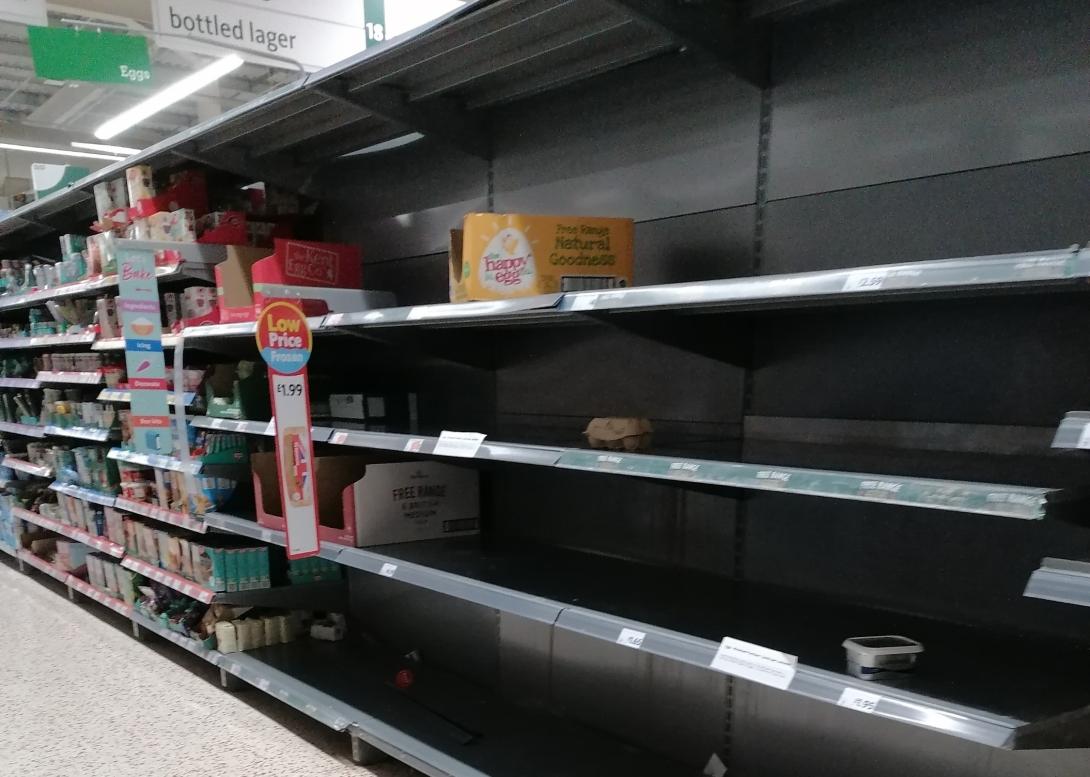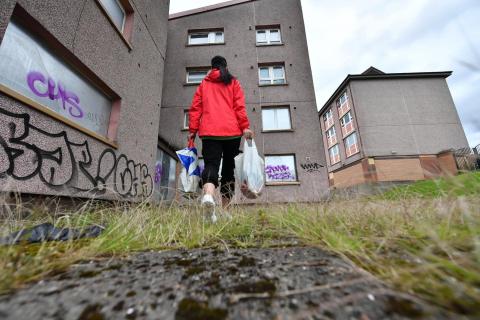10 July 2024
'A future where everyone can access healthy food is not a pipe dream'

In the first of a series of blogs from citizens who have experienced food insecurity our Food Ambassador Dan White shares his thoughts on Labour's election victory and what he'd like the party's priorities to be
New promises and a time for change. That’s the message fizzing out of Downing Street since Keir Starmer and his ministers stepped over the threshold and into power.
For many across the country, promised change cannot happen soon enough. For countless thousands, homes remain unheated, bills remain unpaid, and more importantly for health and wellbeing, plates and cupboards remain empty.
The need to feed the nation should be, along with a functioning health care system, the baseline of any society, and as we move into a hopeful new era, giving people easy access to cheaper and nutritious food should be a priority.
We still live in an era where the only food within reach of financially vulnerable people are the ones on the lower nutritional end, the value foods, the ones often bulked out with less costly ingredients, and for the community I live and work in, the Disabled community, this only adds to ongoing health issues.
I recently hosted an online roundtable event with invited Disabled guests to get to the issues of food poverty and what it means to their physical and mental health.
The resulting discussion only confirmed my fears, that people are in further physical decline and are eating foods that only make them feel worse.
It should come as no surprise that lack of decent, nutritional food is perhaps a more horrific scenario for Disabled people because they already struggle to maintain good health with varying conditions that leave them more at risk of illness than anyone else.
Disabled people also face growing living costs and therefore have less access to food. They often live in areas where gaining access to nutritious food is harder (food deserts) and of course they often live in inaccessible housing where it may be harder to prepare and cook food, leading to the purchase of more processed or prepacked food.
There are countless other reasons for Disabled people why food poverty and nutritional deprivation are prevalent, but the question is, what can be done to give us access to healthy, sustainable food?
Well, imagine that future. As an ambassador to the Food Foundation, the answers are already in print in our Broken Plate report and should be recommended, in fact demanded reading for this new administration and of course retailers.
To begin, from a governmental perspective, benefits are the bedrock for Disabled people and so they must be increased. Having a decent income is essential to buy good quality food without the worry of leaving the lights or the heating on.
For retailers’ healthy foods are over twice as expensive per calorie as less healthy foods, this need not be the case, there must be a rebalance so healthy food options are the most affordable and of course for ease of preparation there must be a drastic rethink of processed food and what it contains.
Retailers hold the keys to the consumer kingdom, profit should not be used as defence when people, especially Disabled people fall further into ill health via their foods.
A future where everyone can have ease of access to healthy food is not a pipe dream, it is a workable reality. Government and retail should take up the reins of this, and not rely on local community groups to try, with limited resources, to end food poverty.
This new government needs to address hunger with urgent policy changes and new legislation and work with supermarkets, disabled people and organisations like the Food foundation, so food is once again a joy not a fear, so that no plate is broken.





